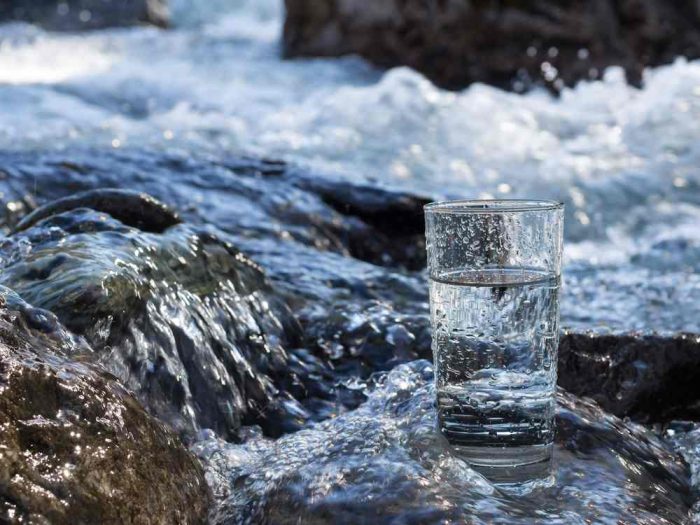
It’s easy to assume that all drinking water is the same. After all, it’s just water. However, there is more to water than meets the eye. Depending on where you’re located and what type of water you prefer to drink, your options may be different from someone else’s. This article will introduce you to two types of water commonly found in beverage bottles: spring water and mineral water. Both of these waters have certain properties that set them apart from other types of drinking water, making them unique and beneficial in their own ways. Let’s take a closer look at their differences so you can decide which one is best for your needs and which water to use for your hot and cold water dispensers.
What is Spring Water Vs. Mineral Water?
First, let’s take a look at what mineral water is. Mineral water is a type of drinking water that contains minerals and has a naturally occurring high pH. It comes from groundwater, and usually contains varying minerals relative to the source with at least 250 or more parts per million of total dissolved solids.
Spring water also comes from the ground or protected aquifer that is found below the earth’s natural water table. It can be collected in an opening of a spring or borehole tapping from an underground source.
Spring water is considered to be naturally filtered from the ground through porous sources such as rock formations, while all mineral water needs to be filtered. With both water coming from the ground, how exactly do they differ?
5 Differences Between Spring Water & Mineral Water
This section highlights the four main differences between spring water and mineral water: taste, source, components, purification process, and naturalness.
The Difference in Taste Between Mineral Water and Spring Water
Like other types of drinking water, the taste of mineral water and spring water will vary based on the quality of the source, the way it is treated, and the mineral content.
Mineral water may be slightly sweet or salty depending on the minerals it contains. Since mineral water is also more likely to have a slightly “earthy” taste, you may want to try different brands to see which one you like best. Spring water, on the other hand, may taste a bit more smooth and slightly sweeter. Ultimately, it mostly depends on the water source and treatment.
The Difference in Sources of Mineral Water and Spring Water
Spring water is naturally filtered and purified from a spring source or a borehole tapping from an underground source. Mineral water on the other hand is water that has been processed by going through a filtration process that includes minerals or salts added to the water. Both come from underground water sources but a spring source is a natural formation of water, while a mineral source may come from a manmade formation of water.
The Difference Between Spring Water and Mineral Water Components
Spring water contains traces of minerals like magnesium, potassium, calcium, and sodium, among others, and is revered because of the rich mineral content that comes straight from the source. Similarly, mineral water contains natural minerals but the composition differs depending on the salts that are added to it. Some mineral water may be artificially added with salts or infused with gasses like carbon dioxide or hydrogen sulfide.
Another thing that distinguishes mineral water from other kinds of water is that it has a “constant level and relative proportions of minerals and trace elements”, according to the FDA.
The Difference in the Purification Process Between Spring Water and Mineral Water
Both mineral water and spring water is purified using a variety of different methods depending on the brand. Some of the most common methods used to purify mineral and spring water include filtering, distillation, reverse osmosis, ion exchange, and microfiltration. Impurities such as bacteria, particles, and other unwanted elements are removed resulting in clean water that is safe to drink.
The appeal of spring water is that it is naturally purified and impurities and is usually bottled at the source. While some spring water may not undergo intensive treatment as others, it boasts water coming from a pure source where natural minerals are rich. It is considered the best water for drinking. Mineral water on the other hand is filtered after the water is processed and added with other minerals after.
Which is Natural: Spring Water or Mineral Water?
Both spring water and mineral water are types of filtered drinking water that come from an underground water source. Some mineral water is natural while others can be processed artificially by adding gasses and salts. On the flip side, spring water has been naturally filtered and bottled at the source, with the option of being minimally filtered after to remove other impurities.
Which Water is Best for You: Mineral Water or Spring Water?
Both mineral water and spring water are safe for consumption according to the Environmental Protection Agency (EPA). Mineral water may or may not be artificially processed, while spring water is naturally filtered from a spring source. Both contain naturally occurring minerals and can prove beneficial to your health!
Nonetheless, the differences between spring and mineral water may impact the taste and components of the water, making each type unique. With that said, what matters in choosing the “best” water depends on your needs or preference. Remember to check your water’s source if unsure (make sure it is clean) and don’t forget to stay hydrated!
To help you keep up with your water needs, Lipsey Water offers the purest spring mountain water encased in glass bottles, along with hot and cold water dispensers available in Atlanta. Give us a call to keep your home or your office refreshed with clean, tasty water.
